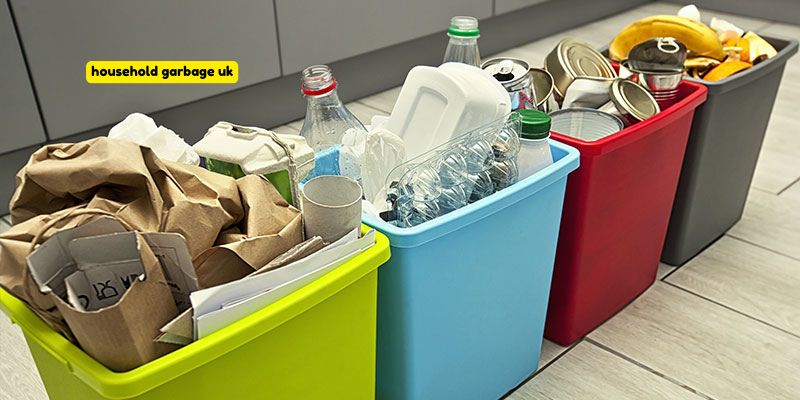In the United Kingdom, household garbage refers to waste produced from residential homes, which encompasses a wide range of materials discarded in daily life. From food scraps to broken electronics, efficient management and disposal of this waste is critical not only for maintaining sanitation and cleanliness but also for environmental sustainability.
The Composition of Household Garbage
Household waste in the UK tends to consist of various categories, as detailed below:
- Organic Waste: Food scraps and garden waste, which are biodegradable and can be composted.
- Recyclables: Items such as paper, glass bottles, cans, and certain plastics that can be processed and reused.
- Household Hazardous Waste: Includes chemicals like paint, batteries, and cleaning supplies that need special disposal procedures.
- Electronic Waste: Old electronics such as televisions, computers, and mobile phones which are harmful to the environment when disposed of improperly.
- Other: Miscellaneous items that do not fit into the aforementioned categories.
Statistics on Household Waste in the UK
Every year, millions of tonnes of household garbage are collected across the UK. The table below illustrates the breakdown of waste composition recorded during the recent years:
| Category | Percentage |
|---|---|
| Organic Waste | 34% |
| Recyclables | 40% |
| Household Hazardous Waste | 3% |
| Electronic Waste | 5% |
| Other | 18% |
The significant proportion of recyclable materials highlights the potential for reducing landfill use through more effective recycling strategies and community participation in household garbage sorting and disposal.
Legal Framework and Public Initiatives
The UK government has instituted various laws and initiatives to manage household waste efficiently. The Environmental Protection Act (1990) and the Waste and Emissions Trading Act (2003) are two key legislative frameworks guiding the treatment and disposal of household garbage. These laws mandate local councils to collect waste while encouraging waste minimization, recycling, and reuse.
Efforts such as the recycling collection services and the promotion of composting programs at communal and individual levels are notable steps towards managing household garbage responsibly.
Challenges to Effective Waste Management
Despite progressive policies, the UK faces substantial challenges in household waste management. These include
- Increasing volume of household garbage driven by consumerism.
- Insufficient separation and sorting at the source leading to contamination of recyclables.
- Limitation in recycling infrastructure to keep pace with the diversity of plastic and electronic waste.
- The ongoing issue of illegal dumping and insufficient public awareness regarding proper disposal methods.
Facing these challenges requires not only enhanced government intervention but also active participation from every household in the UK.
How Can Households Minimize Waste?
Minimizing waste at the household level begins with embracing the principles of Reduce, Reuse, and Recycle. Simple practices like using less disposable products, repairing broken items, donating unused goods, and properly separating waste for recycling can significantly reduce the volume of household garbage.
Conclusion
Household garbage management is a significant aspect of daily life in the UK that impacts environmental health and sustainability. By understanding the composition and challenges associated with household waste, and actively participating in government and community initiatives, individuals can make a substantial difference.
If you are committed to reducing your environmental footprint, start by evaluating and adjusting how you manage your household waste. For further information, support, and resources on waste management in your area, contact your local council or visit environmental protection websites.
Remember, effective waste management begins at home! Let’s work together to create a cleaner, more sustainable environment for all.


